"Game of Thrones" Season 8 set interview: 11 consecutive weeks of night shooting to create the Battle of Winterfell
The great battle is over.
The snow-covered ground is stained with blood.
Beloved heroes lie dead outside the castle gates.
Winterfell is shrouded in silence.
And then...
A thunderous noise from above. A gust of wind. A shadow streaks across the sky.
A dragon?
No.
An ice dragon?
Worse.
“Damn it, a spoiler-leaking helicopter just flew over the set!” a sharp-eyed crew member shouted.
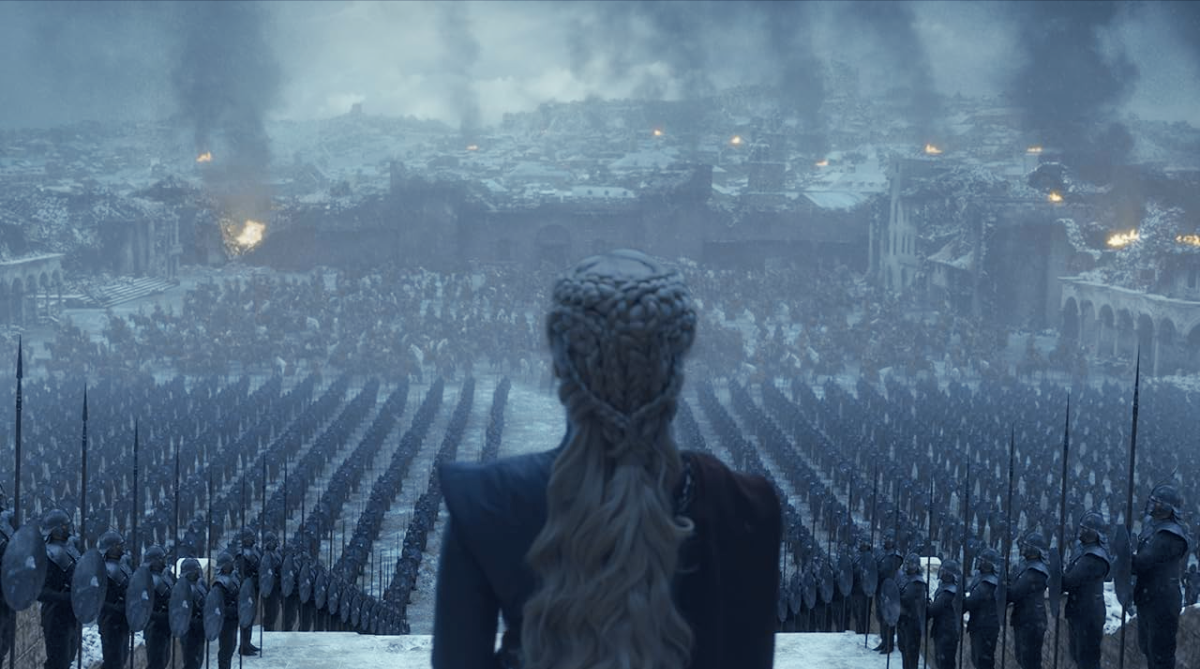
This could have been a disaster.
In April 2018, while filming a particularly sensitive scene for the final season of *Game of Thrones* in Northern Ireland, a plane suddenly appeared, heading straight for the set. The crew had secured government-approved airspace protection—meaning no planes, no drones, and certainly no mysterious helicopters circling above Winterfell. If there were paparazzi aboard, the leaked images could have caused a media firestorm.
The crew contacted the Civil Aviation Authority to track down the aircraft's details, while also alerting David Benioff and D.B. Weiss, the showrunners of *Game of Thrones*, about the potential leak. As always, they remained calm. With a production as vast and fast-moving as *Game of Thrones*, you couldn’t afford to panic every time something went wrong—or you'd never catch your breath.
“There’s always a crisis. There’s always some new disaster,” Benioff said. “You never know where they’re going to come from, or when they’ll happen, but you do get a feel for what’s truly a disaster and what doesn’t really matter.”
After a tense hour, the truth emerged: it was a police helicopter. *Game of Thrones* secrets were safe—for now. Through it all, the production never stopped. Filming had to continue. After all, this final season was one of the most anticipated television events in the world. It took 10 months to shoot its six episodes, and expectations were sky-high.
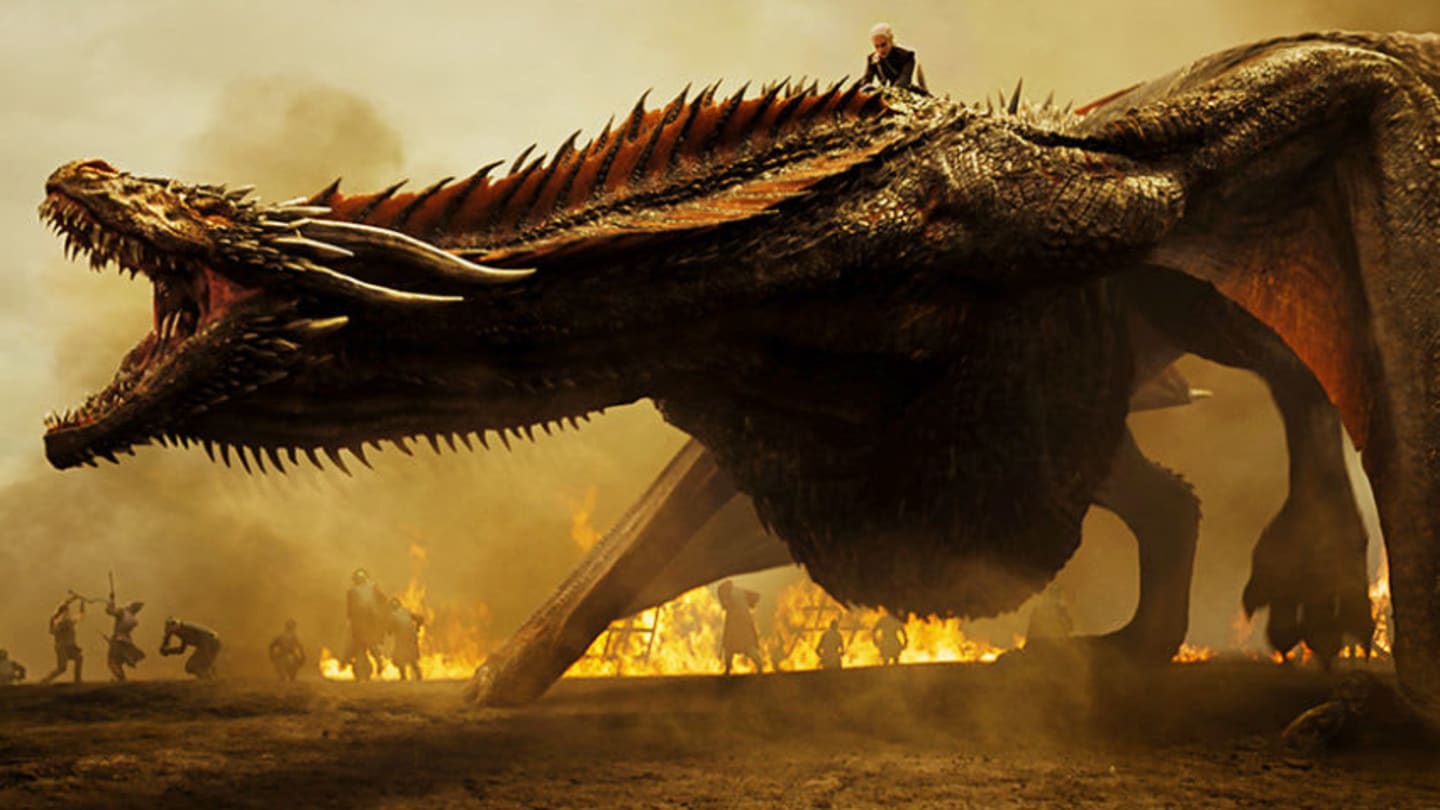
Director David Nutter promises that Season 8 of Game of Thrones will deliver emotional, comedic, and complex scenes, including one that feels like a superhero film. He and other directors, including Miguel Sapochnik, tackled the series’ most ambitious episode: a massive, complex battle at Winterfell between the living and the Night King’s undead army. Featuring the longest battle ever filmed and the most main characters on screen at once, the episode was logistically challenging but expected to be unforgettable. Co-producer Bryan Cogman described it as unprecedented in TV history.
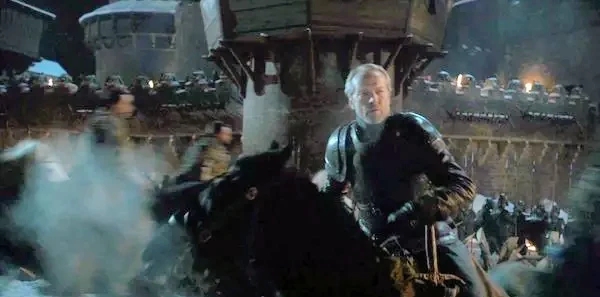
Filming the major battle scene in Game of Thrones Season 8 was grueling and unprecedented. The cast and crew endured 11 weeks of night shoots in freezing, muddy conditions, with physical and emotional exhaustion pushing everyone to the limit. Maisie Williams, who plays Arya Stark, experienced her first on-screen battle and described it as relentless and overwhelming. Director Miguel Sapochnik warned her early on to prepare. Co-stars Iain Glen and Rory McCann confirmed the extreme toll the shoot took, calling it the toughest and most draining part of the entire series.
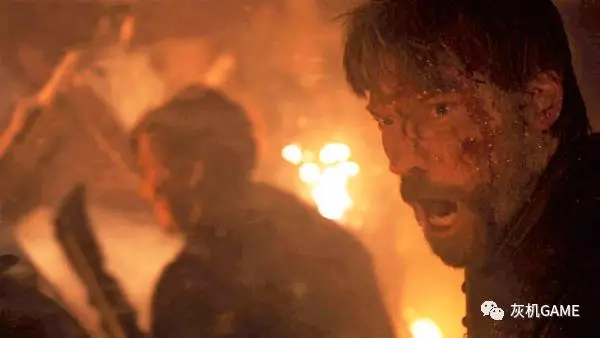
Filming the epic battle in Game of Thrones Season 8 was brutally demanding. Cast and crew endured 11 weeks of freezing night shoots, with extras reportedly walking 40,000 steps a day. Director Miguel Sapochnik faced the challenge of avoiding “battle fatigue” by focusing each shot on character perspective and encouraging actors to carry their own emotional arcs—even when off-camera. He also maintained morale with spontaneous, introspective questions. Though the original plan was to film the battle in small segments (Hollywood’s standard method), Sapochnik insisted on a more immersive, continuous shoot to preserve the show's realism. This resulted in a new filming schedule nicknamed “The Long Night”—a grueling but authentic production effort that stayed true to Game of Thrones’ epic style.

**English Translation:**
Spending so much time on the Winterfell set, working alongside many actors in harsh conditions, reality began to blur.
“I’ve never seen a set like Winterfell,” said Jacob Anderson, who plays Grey Worm. “It’s not like other sets where, once you walk through a door, you’re backstage surrounded by plywood and gear. In Winterfell, you go into a room, walk through a tunnel, and suddenly you’re at the other end of the castle. It’s so convincing. Especially when the sky is filled with smoke and snow and people are running everywhere—you start to feel disoriented. There were moments when I actually forgot it wasn’t real. It was surreal.”
Exhaustion set in, but every detail still mattered. In one scene, John Bradley (Samwell Tarly) was swinging a sword at a wight played by a stunt performer.
“Sam looked amazing,” I said to producer Bryan Cogman, in an admiring tone.
The producer turned to the others and said, “Did you hear what he just said? That’s the problem. Sam isn’t supposed to look amazing.”
Suddenly, I wished I hadn’t said anything. But Bradley quickly adjusted his performance. In the next take, he looked more frantic and clumsy, flinching at every swing from the wight. It worked. In that moment, what we saw wasn’t a heroic Sam—it was **Samwell Tarly**.
“When filming big battle scenes, you can get excited,” Bradley said. “You always want to give your best. But Miguel told me, ‘I know you want to look capable. But remember who your character is. Sam isn’t good at this. That’s why you’re playing him—because that’s what feels real. So don’t fight so well!’”
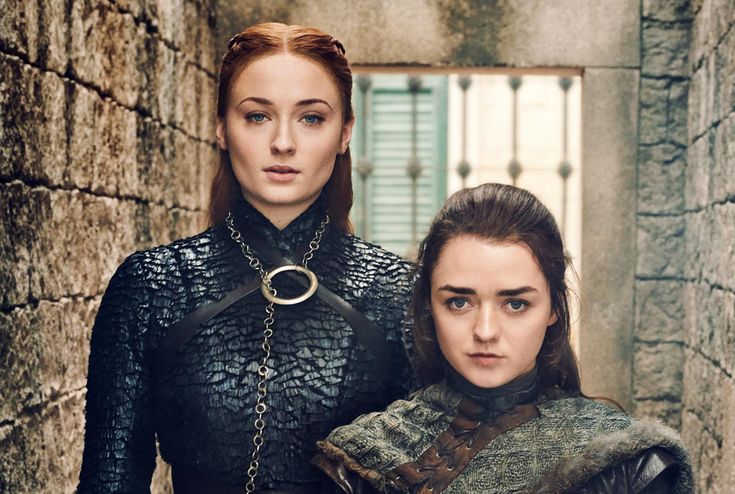
Even during daytime indoor shoots for *Game of Thrones*’ major battle episode, conditions were brutal. The studio was filled with artificial smoke made from paraffin and fish oil, causing discomfort and health issues—one actor was even hospitalized for an asthma attack.
Despite the tough environment, cast members like Sophie Turner and Maisie Williams found brief moments of levity and reflection during breaks, joking about growing up on the show and the harsh conditions.
Director Miguel Sapochnik, working simultaneously with three filming units, was under extreme pressure. The production was so demanding that crew members joked survival itself was an achievement—some even made jackets reading “We survived The Long Night.”
Though exhausted, the cast felt the effort was worth it. Maisie Williams remarked that every hard day contributed to something iconic, and the final result would be unforgettable.
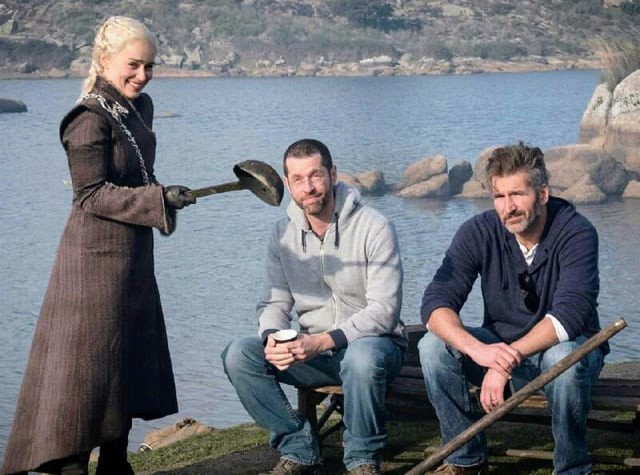
As the Game of Thrones series finale approached, secrecy reached an all-time high. Only select crew members were allowed on set, and some scenes were shot behind completely closed doors. Showrunners David Benioff and D.B. Weiss directed the final episode themselves to ensure full creative control and to avoid leaking any spoilers.
They emphasized that certain moments in the finale had to be executed in very specific ways, and it wouldn't be fair to expect other directors to capture that exact tone or meaning. Despite not catering to fan expectations, they admitted they genuinely hoped people would like the ending. Still, they accepted that no ending could satisfy everyone.
Benioff and Weiss had been thinking about how to end the story since the beginning and acknowledged the pressure of delivering a satisfying conclusion. The final episode was scheduled to air on May 19, with millions of fans eager to find out who would live, die, and sit on the Iron Throne.
As for their personal plans? Benioff joked he would get drunk and stay off the internet after the finale aired.
